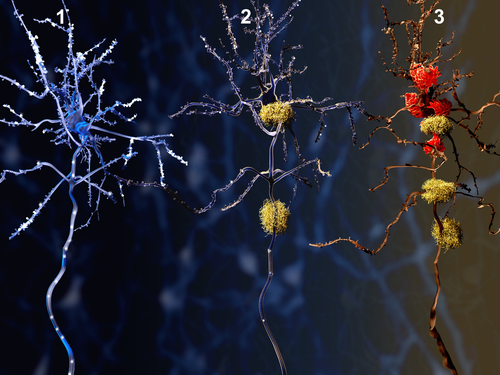AlzeCure Announces Positive Data From Its First Clinical Study of ACD856

AlzeCure Pharma announced positive results from its first clinical study of ACD856 for the potential treatment of Alzheimer’s disease.
According to the company, ACD856 showed a good pharmacokinetic profile — namely a significantly shorter human half-life than its predecessor, ACD855 — and suitability for further clinical development as an oral medication for Alzheimer’s.
Pharmacokinetics refers, essentially, to how the body affects a medicine. The half-life of a compound refers to how long it takes for half of the initial dose that entered the body to be processed and eliminated from the bloodstream.
“We are very pleased that ACD856 has a suitable profile for further clinical development,” said Johan Sandin, PhD, chief scientific officer of AlzeCure, in a company press release. “The compound has previously shown potent cognitive and memory enhancing properties in our preclinical studies.”
“With its potential to improve memory functions in a variety of disorders, ACD856 can play a significant role in treating indications where these key functions are impaired, such as Alzheimer’s disease, sleep apnea, traumatic brain injury and Parkinson’s disease,” he added.
AlzeCure plans to begin Phase 1 clinical trials by the end of 2020 to evaluate ACD856’s tolerability and early efficacy in humans.
ACD856 is currently the company’s leading therapeutic candidate of its drug development platform, called NeuroRestore. The platform comprises three candidate therapies designed to reduce the symptoms of cognitive dysfunction in Alzheimer’s, traumatic brain injury, sleep apnea, and Parkinson’s disease.
NeuroRestore aims to improve cognition by enhancing neurotrophin signaling within the central nervous system (brain and spinal cord). Neurotrophins are proteins that regulate the development, maintenance, and functions of the nervous system.
Many neurotrophins, such as brain-derived neurotrophic factor, or BDNF, also function as neurotransmitters: substances produced in response to nerve signals and that transmit information in turn. Cognitive disabilities arise when these neurotransmitters cannot function properly.
According to AlzeCure, ACD856 has a proven potential to greatly enhance BDNF signaling. Boosting BDNF signaling has been a therapeutic target in Alzheimer’s for some time now, as pathological mutations in the BDNF gene have been associated with faster cognitive declines and greater risk of developing Alzheimer’s.
Previous preclinical results had shown that ACD856 significantly increased the levels of key neurotransmitters in rats’ hippocampus, a brain area involved in memory processing, and improved memory in mice.
Importantly, ACD856 affected different phases of memory formation and was able to fully reverse age-induced cognitive impairment to a level comparable to young mice.
“The results of the NeuroRestore candidate ACD856 are demonstrating the great value of AlzeCure’s broad portfolio of candidates, which together with the company’s strong financial position, enables a strategy where we can develop several candidates in parallel,” said Martin Jönsson, CEO of AlzeCure. “Due to the fact that AlzeCure is not centered around one single drug candidate, a quick follow-up strategy is possible while opening up opportunities for multiple indications.”
“We are now looking forward to taking ACD856 further into the planned clinical studies,” he added. “This will also stimulate potential partnership and out-licensing discussions as well as increase interest in the NeuroRestore platform.”






